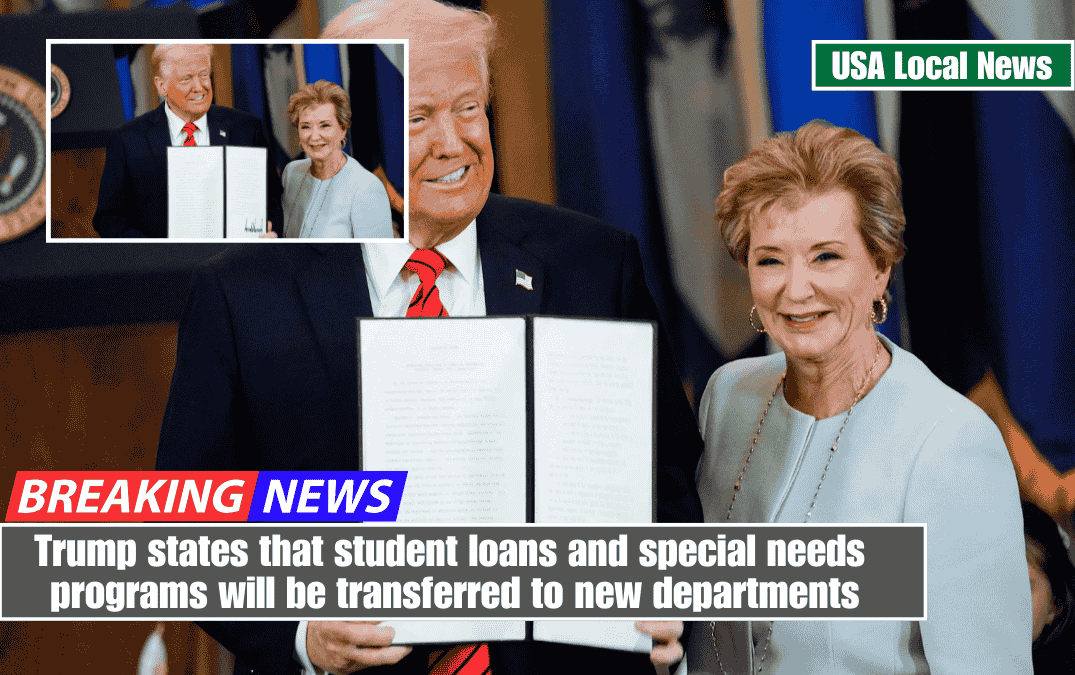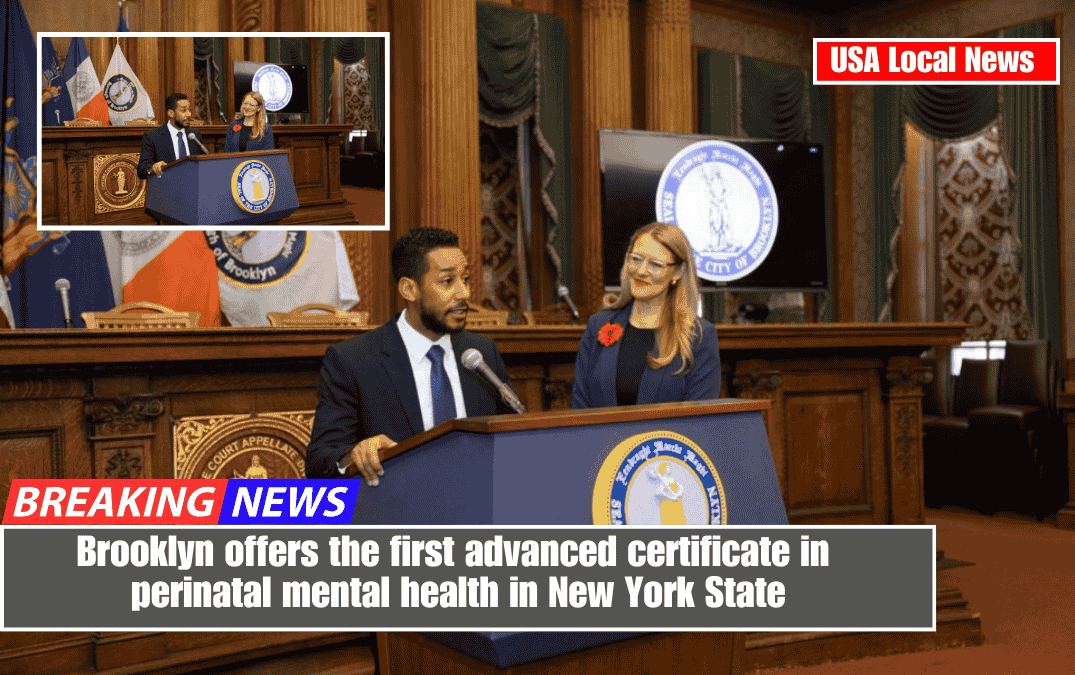President Donald Trump announced Friday that two key functions of the Department of Education, which he is attempting to abolish, will be transferred to new departments: the Small Business Administration will handle student loans, and the Department of Health and Human Services will handle special needs and nutrition initiatives.
“I do want to say that I’ve decided that the SBA, the Small Business Administration, headed by Kelly Loeffler, [who] is a terrific person, will handle all of the student loan portfolio,” said Mr. Trump.
“We have a very large portfolio, with tens of thousands of loans — it’s a complicated deal. And that’s coming out of the Department of Education right away,” Trump said, adding that he believes it will be “serviced much better” than before.
The Federal Student Aid Office within the Department of Education currently oversees student loans, which total $1.6 trillion and serve 43 million people.
However, the SBA, which already handles billions of dollars in loans each year, has faced cuts since Trump took office, announcing plans to reduce its staff by 43% as part of an agencywide reorganization.
The Small Business Administration (SBA) disclosed that it would “eliminate approximately 2,700 active positions out of a total active workforce of nearly 6,500 through voluntary resignations, the expiration of COVID-era and other term appointments, and a limited number of reductions in force.”
The Federal Student Aid Office employs over 1,000 people, but it is unclear whether these employees would be transferred to the SBA or how the agency would handle an influx of loans to manage.
Trump stated that Robert F. Kennedy Jr.’s HHS will handle “special needs, all of the nutrition programs, and everything else,” but admitted that it is “rather complex.”
“Those two elements will be taken out of the Department of Education, and then all we have to do is get the students to get guidance from the people that love them and cherish them,” Mr. Trump said.
The president insisted that the core functions would remain unchanged.
“Pell Grants, Title 1, funding resources for children with disabilities and special needs will be fully preserved,” Trump said before signing the bill on Thursday. “They’re going to be preserved in full and redistributed to various other agencies and departments that will take very good care of them.”
The president did not specify how those portfolios would be transferred to other agencies, only stating that it would occur “immediately.”
Mike Pierce, Executive Director of the Student Borrower Protection Center, condemned the president’s announcement, which education advocates claimed has caused chaos and confusion across the educational landscape.
“Moving the student loan program to the SBA is illegal, unserious, and a clear attempt to distract the public from the fact that Trump has broken the student loan system and is actively cheating millions of borrowers out of their rights,” Pierce told ABC News in an email.
At least one aspect of the plan, transferring the student loan system to another department, is likely to face significant legal challenges.
The central legal issue is likely to be the Higher Education Act of 1965, which states that the Federal Student Aid Office should be overseen by the Secretary of Education.
“Congress has charged the secretary of education with administering the federal student aid program by issuing student loans and grants to support students’ attainment of higher education,” said Andrew Crook, press secretary for the American Federation of Teachers.
“The department’s office of Federal Student Aid is statutorily mandated to do so and has the unique expertise to manage the complex student aid program.”
Randi Weingarten, AFT President, was more blunt: “See you in court,” she said in a statement following Trump’s executive order on Thursday.
Even conservative policy experts, such as Rick Hess, a senior fellow at the American Enterprise Institute, expect legal challenges to the Higher Education Act.
Hess supports dismantling the department, claiming that the Federal Student Aid Office would be better suited to a different agency with a stronger financial background.
This comes as the Department of Education recently cut nearly half of its workforce, including large chunks of the Federal Student Aid Office, which manages the student loan portfolio.
At the same time, Education Secretary Linda McMahon promised to either dismantle the agency entirely, in consultation with Congress, or to reallocate its key functions to other agencies.
James Kvaal, who served in senior positions in both the Obama and Biden administrations, told ABC News that his higher education portfolio under President Barack Obama included transferring some loan functions to the Treasury Department.
“Treasury had its own authority to collect on debts, and they wanted to see if they could do a better job with student loans than the Department of Education was doing,” Kvaal told ABC News in a Friday interview.
“And the answer was no; they ended up incurring higher costs while collecting fewer dollars for the Treasury. “So, you know, the pilot was abandoned,” he explained.
As a result, Kvaal described the current situation as ambiguous.
Meanwhile, he stressed that rehoming the student loan portfolio could have serious consequences.
“We’re at a point now where millions of borrowers are late on their student loans,” said Mr. Obama. “For the department to be focused on laying off half its staff and going through a fundamental reorganization of how it administers these programs, you know, in really critical weeks for borrowers who are trying to get into repayment plans or get loan forgiveness, I think it’s very dangerous and puts a risk millions of borrowers of going into default on their loans.”
Jessica Thompson, senior vice president of The Institute for College Access and Success, emphasized that borrowers are already facing a “mountain of problems” in repaying their debts.
“This can only result in borrowers facing problematic, inaccurate, and inconsistent servicing of their federal student loans,” Thompson told ABC News. “Errors will be costly for borrowers and, ultimately, taxpayers. “All of this is preventable.”















